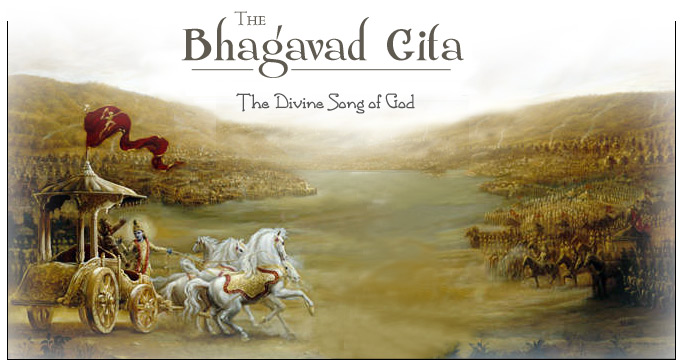Gandhi’s Religion: A Few Thoughts
by Vinay Lal

Illustration courtesy mayapur.com
More so than any other major political figure of modern times, Mohandas Gandhi was a man of religion – though perhaps not in the most ordinary sense of the term. No political figure of the last few hundred years brought religion, or more properly the religious sensibility, into the public domain as much as Gandhi. He concluded his autobiography, first published in 1927, with the observation that those who sought to disassociate politics and religion understood the meaning of neither politics nor religion. Indeed, the most pointed inference we can draw from Gandhi’s life is the following: the only way to be religious at this juncture of human history is to engage in the political life, not politics in the debased sense of party affiliations, or the politics that one associates with being conservative or liberal, but politics in the sense of political awareness. After Gandhi, we must clearly understand, as did Arnold Toynbee and George Orwell, that the saint’s religiosity can only be tested in the slums of life.
And, yet, the criticism that Gandhi introduced religion into politics has persisted, displaying a tenacity that is oblivious to Gandhi’s definition of religion. Replying to one of his critics in 1920, Gandhi wrote: “Let me explain what I mean by religion. It is not the Hindu religion, which I certainly prize above all other religions, but the religion which transcends Hinduism, which changes one’s very nature, which binds one indissolubly to the truth within and which ever purifies. It is the permanent element in human nature which leaves the soul restless until it has found itself.” (1)
Read the pdf of the complete article by clicking here: Gandhi’s Religion
EDITOR’S NOTE: Vinay Lal is Professor of History and Asian American Studies at UCLA. He writes widely on the history and culture of colonial and modern India, popular and public culture in India (especially cinema), historiography, the politics of world history, the Indian diaspora, global politics, contemporary American politics, and the life and thought of Mohandas Gandhi. He is the author or editor of over fifteen books. His exceptional blog site gives a full biography, and list of his publications. It is regularly updated with a wealth of articles on India and Gandhi.




